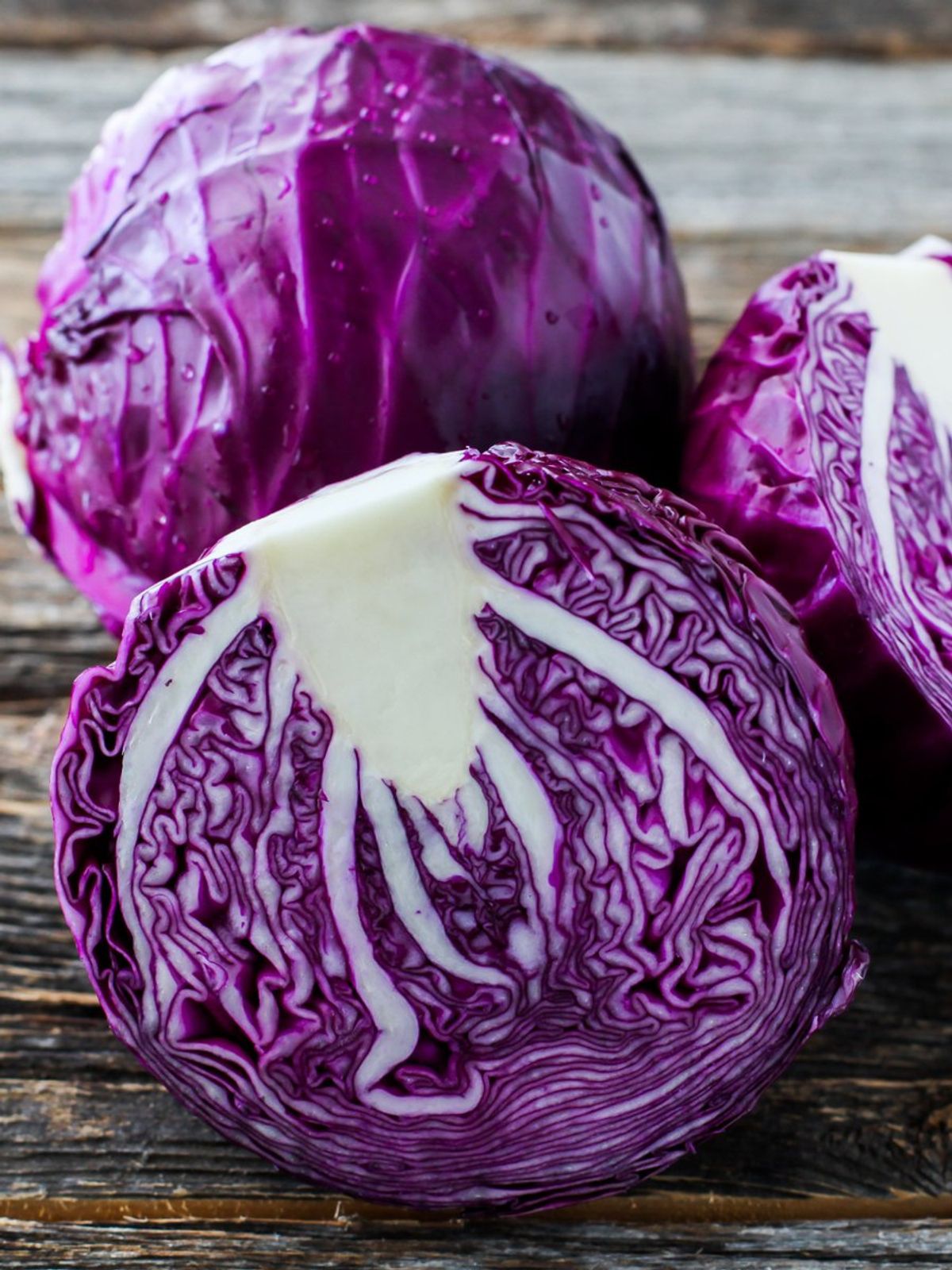
Purple cabbage is a nutrient-rich vegetable linked to a variety of health benefits, including reduced inflammation, a healthier heart, stronger bones, improved gut function, and maybe a lower risk of certain cancers.
Purple cabbage, also referred to as red cabbage, belongs to the Brassica genus of plants. This group includes nutrient-dense vegetables, such as broccoli, Brussels sprouts, and kale.
It tastes similar to green cabbage. However, the purple variety is richer in beneficial plant compounds that have been linked to health benefits, such as stronger bones and a healthier heart.
Purple cabbage is also thought to lower inflammation and protect against certain types of cancers. Moreover, it’s an incredibly versatile vegetable that can be enjoyed raw, cooked, or fermented and added to a variety of dishes.
Here are 5 impressive health benefits of purple cabbage, all backed by science.
1. Rich in protective antioxidants
The beautiful purplish colour of red cabbage is thanks to anthocyanins. These pigments possess protective antioxidant properties, which means they help the body combat the damaging effects of a process known as oxidation. There’s currently a lot of research evaluating how they may benefit our health; for example, there are growing links between the use of dietary anthocyanins to help improve obesity and related diseases, including type 2 diabetes.
Brassica vegetables are especially rich in anthocyanins as well as other antioxidant nutrients, like vitamins C, E and the carotenoids.
2. May support heart health
There is growing evidence that anthocyanins play a positive role in cardiovascular health and that those who eat foods rich in them (like red cabbage) have a lower risk of heart attacks and heart disease-related death.
3. May help fight inflammation
A key component of brassica vegetables, including red cabbage, is a sulphur-rich plant compound called sulforaphane. We activate this compound when we chop or chew brassica vegetables, with the highest levels found in the chopped, raw vegetable. In addition to its connection to heart health and protection of the gut from damage, sulforaphane is also responsible for some of the anti-inflammatory properties of these vegetables.
4. Contains anti-cancer compounds
While there are no ‘superfoods’ that can prevent cancer, and certain risk factors for cancer are unrelated to diet, there is evidence that eating a healthy diet can reduce your cancer risk. Being rich in compounds like sulforaphane and anthocyanins, red cabbage is certainly one vegetable to add to your diet. These beneficial compounds appear to prevent oxidative damage and possibly act in a protective way against cancer, including colorectal cancer.
5. May support gut health
Red cabbage is a good source of fibre, including the insoluble variety, which promotes regular bowel movements. The fibre in cabbage acts as a prebiotic, which means it’s the type of fibre that provides a fuel source for the beneficial bacteria that live in your gut. Compounds in red cabbage called isothiocyanates appear to be particularly beneficial because they encourage the gut bacteria to produce short-chain fatty acids (SCFAs) – valuable compounds that have a far-reaching influence on our gut and wider health.
Is red cabbage safe for everyone?
Although safe for most, it is possible to be allergic to cabbage because of cross reactivity or ‘pollen food syndrome’, which also includes plants such as aubergine, beetroot, celery and peppers. A mild reaction may include symptoms such as an itchy mouth or tongue, sneezing or a runny nose. If you experience these symptoms, speak to your GP. If a more serious allergic reaction occurs, call for an ambulance immediately.
If you have a thyroid issue, you may be advised to minimise the amount of brassica vegetables you eat. This is because these vegetables may interfere with the absorption of iodine, which is needed for the production of thyroid hormones. However, it’s worth bearing in mind that you would need to eat a reasonable amount consistently for this to be an issue.
Cabbage is a high-fibre food, which for most of us is highly beneficial – it supports the digestive process and provides a fuel source for the healthy bacteria that reside in our gut. However, for some people, high-fibre foods may cause bloating and gas. This is especially relevant for those with inflammatory bowel disease (IBD), Crohn’s disease or ulcerative colitis.
If you are on blood-thinning medication such as warfarin, your GP or registered dietitian may suggest you monitor the vitamin K foods (like cabbage) in your diet to ensure you eat similar amounts consistently. If in doubt, consult your GP before making any significant changes to what and how much you eat.
Overall, is red cabbage good for you?
Red cabbage is a nutrient-rich vegetable which has been linked to a number of health benefits, including inflammation, a healthier heart, improved gut function and a lower risk of certain cancers. Richer in some types of antioxidant compounds than either white or green cabbage, it is particularly beneficial when eaten chopped and raw in a slaw or salad.














Roswell Mbabazi
Leave a Comment
Your email address will not be published.